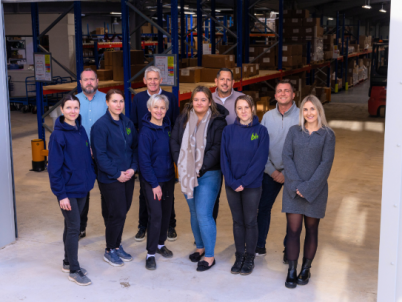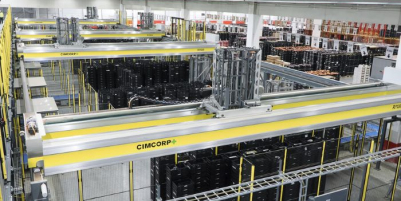-
Nulogy Introduces the Manufacturing Operating System - February 27, 2026
-
Bliss Direct scales to 300 daily orders and saves 25 hours per week with Forterro’s Orderwise ERP - February 25, 2026
-
Wootzwork raises $6.6M to bring predictability to offshore manufacturing - February 25, 2026
-
Rite-Hite unveils new range of hydraulic kits to upgrade and extend dock leveller performance - February 19, 2026
-
REWE and Cimcorp automate fresh supply chain for Berlin supermarkets and stores - February 19, 2026
-
Q1 – A recovery period or time to fix, switch and scale? - February 19, 2026
-
NULOGY’S SHOP FLOOR SOFTWARE TO POWER COMPLETE CO-PACKING’SOPERATIONS - February 13, 2026
-
Why lead generation depends upon good content - February 13, 2026
-
Wallapop and Albatross Sign Strategic Partnership to Bring Real-Time AI Discovery to the Future of Consumer-to-Consumer Commerce - February 12, 2026
-
Thorworld ramp helps Hubergroup to streamline its unloading operation - February 6, 2026
Any 3PL that neglects the important role that business ethics and a demonstrable commitment to sustainability now play across the commercial world can expect to struggle, says Charlie Walker.
A logistics service provider’s ability to demonstrate that it operates in an ethical way and is genuinely committed to social justice and environmental sustainability is becoming as mission critical as the quality and cost of the range of picking, packing and distribution services it offers.
This is being driven, in part, by the response of companies operating across a range of business sectors to a growing societal trend that demands the highest standards of ethical conduct as well as environmental responsibility. Quite simply, modern businesses – from retailers to house builders – now expect their supply chain partners to prioritise the environment along with such virtues as fairness, diversity and tolerance in their commercial dealings. For 3PLs failure to do so might not only mean risking reputational damage but could also see revenues shrink as potential new clients – as well as existing customers – opt to take their business elsewhere.
So, planning and implementing an effective ESG (Environmental, Social and Governance) strategy is now considered a top priority for every 3PL – from the biggest multi-national player to the many thousands of SMEs that collectively dominate the UK’s logistics landscape.
At Walker Logistics we have just started out on our ESG journey. Environmental considerations have driven much of what we do for a long time and it is pleasing to see how ecologically efficient many of our existing processes and operations already are. But there is still much that we can improve upon. For example, we are in the process of deploying tooling that will allow us to accurately monitor how much energy we use to run different parts of our operation. By increasing awareness of the environmental implications of certain activities we will be able to implement changes that will not only make us ‘greener’ but also (in theory, at least) reduce operating costs.
We are also developing a net zero strategy. While I do not believe that any organisation on the planet can claim that its operation achieves absolute net zero status, this doesn’t mean that companies such as Walker cannot contribute to global net zero targets by reducing emissions and eliminating waste where possible from our day-to-day activities. We have set ourselves a short-term target of halving our emissions by 2030 and, looking further ahead, we hope to see a total emissions reduction of 90-95 per cent by 2050.
There is no doubt that sustainability is one of the key new fronts on which logistics companies must compete and it is something that is certainly going to have a significant impact on every business’s long-term viability. It is no longer enough to ‘green wash’ environmental performance or treat issues such as diversity and inclusion in the workplace as another ‘box ticking exercise’. Any 3PL that neglects the important role that business ethics and a demonstrable commitment to sustainability now play across the commercial world will struggle in the very near future.
Charlie Walker is Head of Sales at Walker Logistics. With storage facilities across southern England the company offers a comprehensive range of bespoke online fulfilment and supply chain services.

































